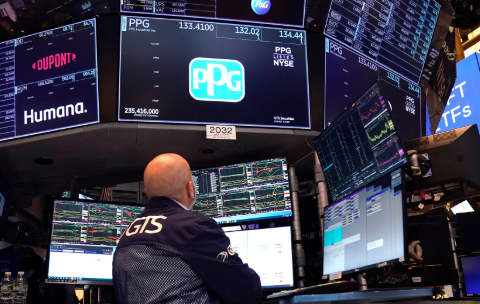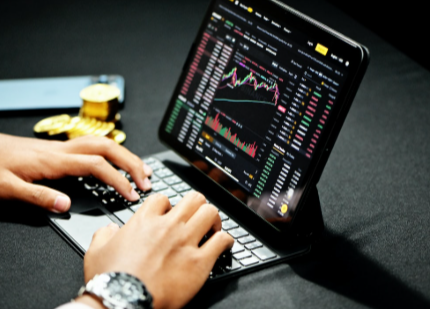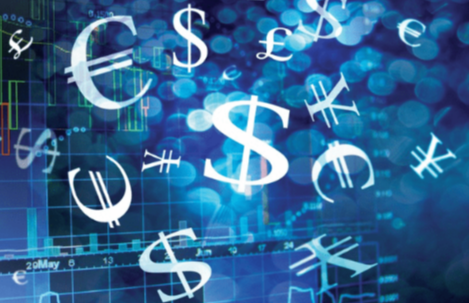Trading Psychology: How Emotions Affect Your Success
Trading psychology significantly influences a trader’s performance and outcomes. Emotions such as fear and greed can disrupt rational decision-making, leading to impulsive actions. This interplay between emotion and action creates a complex landscape where traders must navigate their internal states while responding to external market conditions. Understanding these dynamics is essential for anyone seeking lasting success in trading. What strategies can be employed to cultivate emotional resilience and discipline in this high-stakes environment?
The Role of Emotions in Trading Decisions
Emotional intelligence plays a critical role in trading decisions, influencing the choices traders make in high-stakes environments. Traders often encounter cognitive biases that can cloud judgment, leading to impulsive decisions driven by fear or greed.
Emotional intelligence enables traders to recognize and manage these biases, fostering a clearer perspective on market dynamics. By cultivating self-awareness, traders can identify their emotional triggers and respond rationally rather than reactively.
This ability to regulate emotions not only enhances decision-making but also promotes resilience in the face of market volatility. Ultimately, developing emotional intelligence empowers traders to navigate the complexities of trading with greater freedom, allowing them to act with intention rather than being swayed by fleeting emotional states.
Understanding Fear and Its Impact on Trading
Fear, a powerful and often paralyzing emotion, significantly impacts trading behavior. Traders often exhibit fear responses that stem from psychological triggers, such as the fear of loss or the uncertainty of market fluctuations.
These responses can lead to hasty decision-making, where traders might exit positions prematurely or avoid taking calculated risks altogether. The influence of fear can create a cycle of anxiety, impeding the ability to analyze market conditions rationally.
Recognizing these emotional patterns is crucial for traders seeking financial freedom, as it allows for the development of strategies that mitigate fear-driven impulses. By fostering a mindset that embraces uncertainty as part of the trading journey, individuals can regain control, enhancing their decision-making capabilities and overall trading success.
The Dangers of Greed in Market Behavior
Greed, an insatiable desire for more, poses significant risks in the realm of trading. Traders often fall prey to greed-driven decisions, seeking quick profits and overlooking prudent strategies. This relentless pursuit can cloud judgment, leading individuals to ignore market fundamentals and engage in risky behaviors.
In extreme cases, greed fuels market manipulation, where traders exploit others’ vulnerabilities for personal gain. Such actions not only destabilize markets but can also lead to a loss of trust among participants. Ultimately, the dangers of greed extend beyond financial losses, eroding the very freedoms traders seek.
Recognizing this destructive impulse is essential for cultivating a sustainable trading practice that prioritizes long-term success over momentary gratification.
Building Emotional Awareness as a Trader
Self-awareness serves as a cornerstone in the journey of a trader, influencing decision-making and overall performance.
Building emotional awareness involves recognizing emotional triggers that can lead to impulsive trading decisions. Traders are encouraged to engage in self-reflection, examining their emotional responses during both wins and losses.
This process cultivates a deeper understanding of how emotions impact trading behavior, fostering a sense of control. By acknowledging these emotional patterns, traders can identify potential pitfalls and create a more balanced approach to trading.
Embracing emotional awareness not only empowers traders to act with intention but also liberates them from the constraints of fear and anxiety, paving the way for a more fulfilling trading experience grounded in clarity and purpose.
Strategies to Manage Trading Anxiety
As traders navigate the complexities of the financial markets, they often encounter anxiety that can distort judgment and lead to suboptimal decisions. To effectively manage this anxiety, establishing structured trading routines becomes essential.
These routines create a sense of predictability, helping traders to mitigate anxiety triggers such as sudden market fluctuations or unexpected losses. Additionally, recognizing individual anxiety triggers allows traders to develop personalized coping strategies, such as mindfulness techniques or scheduled breaks.
The Importance of Discipline in Trading Psychology
Discipline serves as a cornerstone of effective trading psychology, guiding traders toward consistent decision-making amidst market fluctuations.
By cultivating discipline, individuals can better manage impulsive reactions that often lead to detrimental choices.
This focus on self-regulation not only enhances performance but also fosters a healthier emotional state, ultimately contributing to long-term success in trading.
Consistency in Decision-Making
While many traders may recognize the significance of making informed choices, the true challenge often lies in maintaining consistency in those decisions. Achieving consistency requires the establishment of robust trading routines that mitigate the influence of emotional triggers, which can lead to erratic behavior.
Traders must cultivate discipline, allowing them to adhere to their strategies even when faced with market volatility. This discipline fosters a sense of freedom, as it empowers traders to navigate the complexities of the market with confidence.
Managing Impulsive Reactions
Although traders often possess the knowledge and skills necessary for success, managing impulsive reactions can prove to be a significant hurdle in their journey.
Impulse triggers, such as market volatility or sudden news events, can evoke strong emotional responses that lead to hasty decisions. These reaction patterns often undermine strategic planning, resulting in losses that could have been avoided.
To cultivate discipline, traders must develop self-awareness and recognize their emotional responses, allowing them to pause and assess the situation critically. Implementing structured routines and adhering to a trading plan can help mitigate the influence of impulsive reactions.
Ultimately, fostering emotional resilience empowers traders, granting them the freedom to navigate the markets with confidence and clarity.
Developing a Growth Mindset for Improved Performance
The essence of a growth mindset is rooted in the belief that abilities and intelligence can be developed through dedication and hard work. This perspective fosters resilience and adaptability, essential traits for traders facing the unpredictable nature of the markets.
By embracing challenges and viewing setbacks as opportunities for learning, individuals can experience significant performance enhancement. A growth mindset encourages continuous improvement, allowing traders to refine their strategies and decision-making processes.
This transformative outlook not only nurtures personal development but also cultivates a deeper understanding of the market’s dynamics. Ultimately, adopting a growth mindset empowers traders to navigate emotional turbulence, fostering a sense of freedom and control in their trading journey, leading to more informed and confident decisions.
Techniques for Maintaining Emotional Control During Trades
Maintaining emotional control during trades is crucial for long-term success, and various techniques can aid traders in this endeavor.
Mindfulness and meditation practices can foster a sense of awareness and calm, allowing individuals to respond rather than react to market fluctuations.
Additionally, setting clear trading plans serves as a structured guide, helping traders navigate their emotions while adhering to predefined strategies.
Mindfulness and Meditation Practices
Emotional resilience often plays a crucial role in the success of traders, and mindfulness and meditation practices offer valuable techniques for enhancing this resilience.
By incorporating mindful breathing into their daily routines, traders can cultivate awareness and presence, reducing anxiety and impulsive decision-making.
Meditation techniques, such as guided imagery or body scans, help individuals gain insight into their emotional triggers, fostering a deeper understanding of their responses to market fluctuations.
This self-awareness empowers traders to maintain emotional control, even in high-pressure situations.
Ultimately, embracing these practices not only supports mental clarity but also encourages a sense of freedom, allowing traders to navigate the complexities of the market with confidence and composure.
Setting Clear Trading Plans
Building on the foundation of mindfulness and meditation, traders can further enhance their emotional resilience by establishing clear trading plans.
These plans serve as a roadmap, aligning trading goals with actionable strategies that reduce the impact of emotional fluctuations. By incorporating robust risk management techniques, traders can set limits on potential losses, fostering a sense of security and control.
This structured approach allows for objective decision-making, minimizing impulsive reactions driven by fear or greed. Furthermore, a well-defined trading plan empowers individuals to maintain focus amidst market volatility, ultimately guiding them toward their desired outcomes.
In this way, clarity in planning not only enhances trading performance but also nurtures the emotional freedom essential for sustainable success in the trading arena.
Conclusion
In the high-stakes arena of trading, where emotions can sway decisions like the tides, understanding and managing these feelings becomes paramount. Just as Odysseus had to navigate the sirens’ song, traders must resist the allure of impulsive reactions driven by fear and greed. By cultivating emotional intelligence and discipline, they can chart a course through turbulent markets, ultimately achieving sustained success. In this journey, self-awareness is not just a tool, but a beacon guiding them to safer shores.





